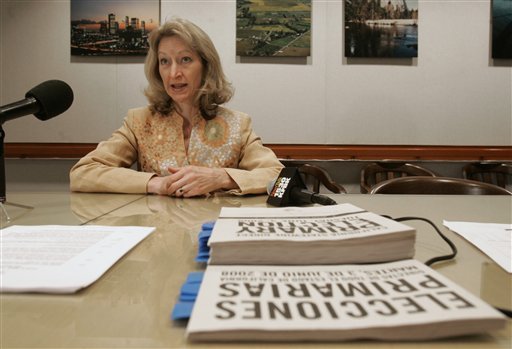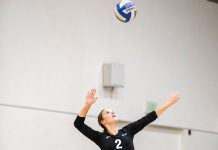Californians in a little-watched primary election Tuesday curbed
marijuana-growing in Mendocino County, shielded many homeowners
from government property seizures and picked dozens of candidates
to run for U.S. House and legislative seats in the fall.
Californians in a little-watched primary election Tuesday curbed marijuana-growing in Mendocino County, shielded many homeowners from government property seizures and picked dozens of candidates to run for U.S. House and legislative seats in the fall.
On a day when Barack Obama claimed the Democratic presidential nomination, voters in the nation’s most populous state showed scant interest in an election of local races and ballot questions held four months after the state’s presidential primary. Some early predictions suggested that turnout at the polls could hit a historical low.
In Sacramento, former NBA All-star Kevin Johnson held a narrow lead in incomplete returns in his quest to unseat a two-term incumbent for mayor of California’s capital city. In San Diego, Mayor Jerry Sanders was leading several rivals in his bid for another term.
Voters split on dueling ballot questions dealing with property rights, which grew out of legal disputes in which local governments condemned homes to make way for shopping malls, hotels or other development.
Voters easily approved Proposition 99 to restrain governments’ ability to seize homes, which was backed by the California League of Cities and environmentalists. But the rival Proposition 98, which also contains a provision to phase out rent controls, was soundly rejected.
In Mendocino County, voters repealed a law allowing residents to grow up to 25 marijuana plants for medical or personal use, which critics had called a giveaway to drug dealers.
In one of the few races that attracted wider interest, state Sen. Tom McClintock defeated former Rep. Doug Ose to claim the Republican nomination in Northern California’s 4th Congressional District. The seat is being vacated by Rep. John Doolittle, a Republican being investigated in an influence-peddling scandal, and McClintock will be favored in the November general election over Democrat Charlie Brown.
A record number of Californians turned out to vote Feb. 5 in the presidential primary, energized by the lure of a historic election and big names such as Obama, Hillary Rodham Clinton and John McCain on the ballot.
But it was far different Tuesday. A preliminary turnout assessment in Los Angeles County suggested scant voter participation – just 18 percent.
“This could be a record low for a statewide primary in California, at least in modern times,” said Mark DiCamillo of the independent Field Poll. The low turnout mark was notched in the 2006 state primary, when 33.6 percent of registered voters cast ballots.
The overall number of voters in February, 9 million, was 1.2 million more than the previous record set in March 2000. The turnout percentage in February was 58 percent, the highest for a primary since 1980.
For the first time since 1940, the state decided to have its presidential primary and legislative primary on different ballots, essentially creating a two-part primary on different dates.
In all, voters were picking candidates for 53 congressional seats, 80 seats in the Assembly and 20 seats in the 40-member state Senate. Some competitive local contests could drive up turnout in several areas, but there were no statewide contests for governor or U.S. senator, the usual enticement for voters.
In San Diego, the son of longtime Rep. Duncan Hunter easily won the Republican primary to compete for his father’s House seat in November. Duncan D. Hunter, 31, is a veteran of the wars in Iraq and Afghanistan. The Republican congressman is retiring at the end of this term, his 14th, after a failed presidential bid.














